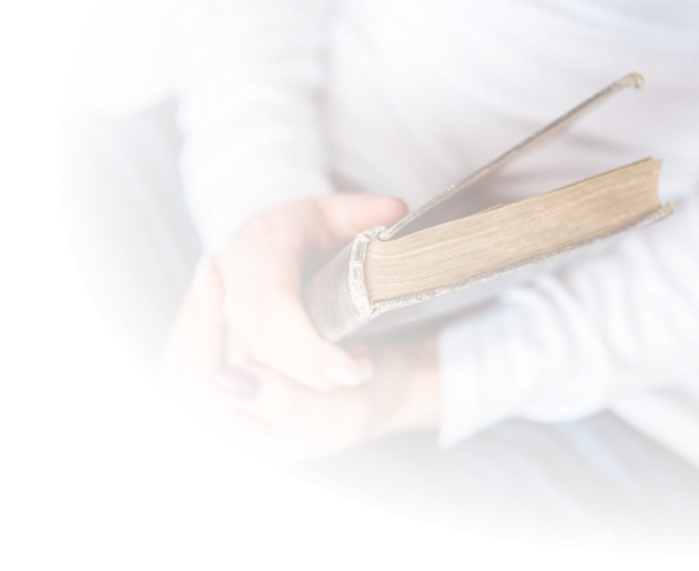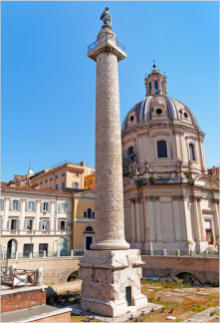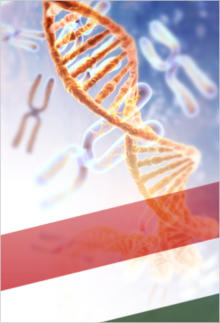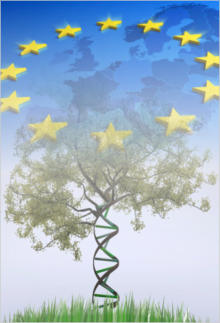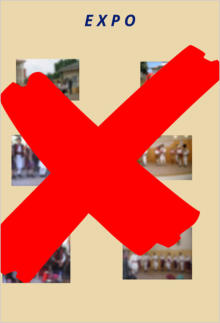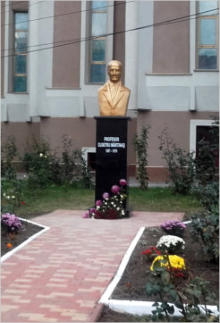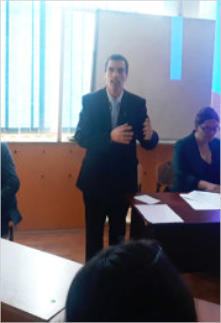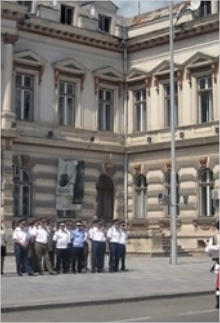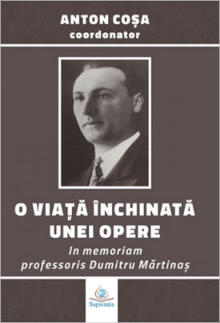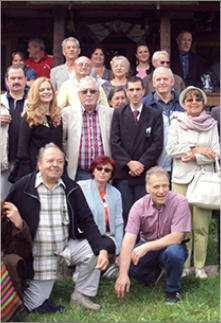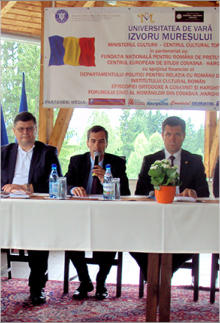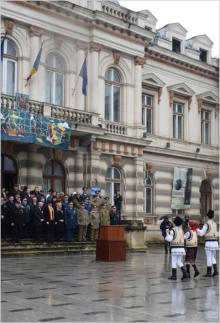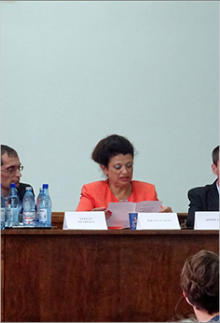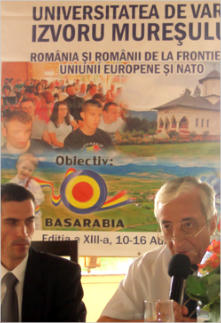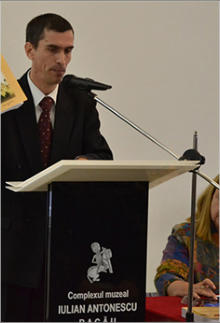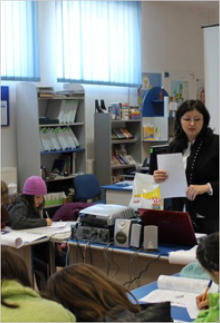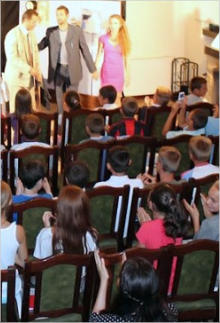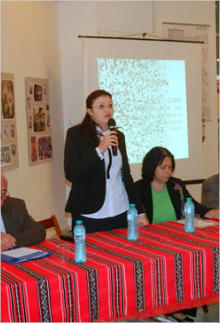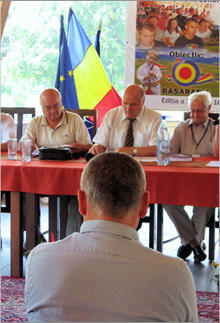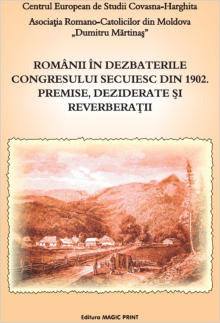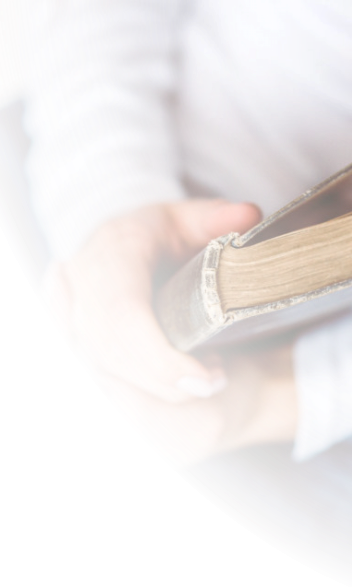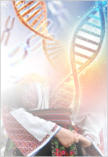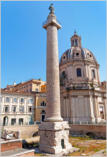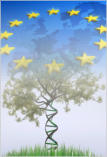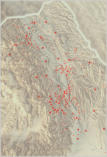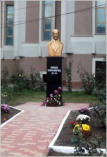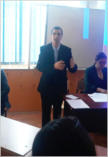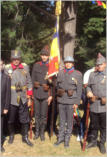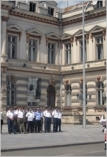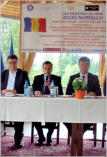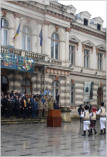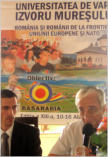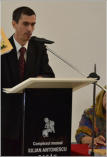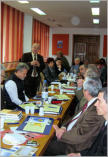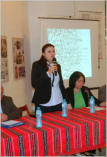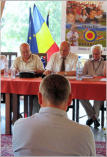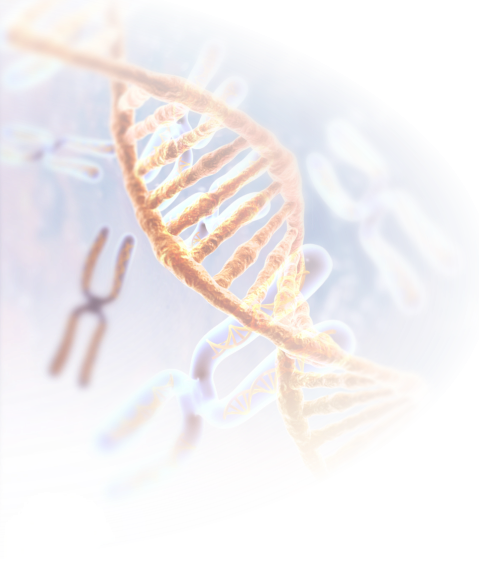
What inspired us ?
Professor
Dumitru
Mărtinaş's
book
entitled:
"The
origin
of
the
csangos
from
Moldava",
makes
an
analysis
of
the
life
of
Moldovan
Catholics,
as
it
iwas
known
by
the
author,
himself
being a Roman Catholic from Neamț County.
The
author
writes
to
defend
his
right
and
that
of
the
community
to
which
he
belongs,
the
moral
right
to
know
and
assume his own identity (see summary of the book…
here >>>
).
Affirming one's identity
Through
our
actions
we
do
not
want
to
influence
anyone
or
attract followers to our beliefs of any kind.
We
just
want
to
tell
everyone
who
we
are,
hoping
that
if
we
are
known,
our
will
and
our
rights
will
be
respected,
equally
with
those
of
all
citizens
in
Romania,
the
European
Union
and
around
the
world (see the page ABOUT).
DNA tests for populations in European countries
From
the
content
of
the
scientific
reports
for
which
there
are
links
on
the
CONFIRMATIONS
page,
from
the
maps
on
the
frequency
of
haplogroups
at
European
level
and
from
the
tables
regarding
the
genetic
structure
of
European
peoples,
it
results
that
there
are
genetic
similarities
between
Romanians,
Hungarians,
Serbs,
Croats,
Slovenes,
Bulgarians.
,
Montenegrins,
Macedonians,
Bosnians,
the
inhabitants
of
these
countries
being
descendants
of
Thracians
and
Dacians
(see
ACKNOWLEDGMENT
page).
DNA tests performed on their own initiative
In
order
to
discover
their
relatives
and
to
find
out
their
origin,
some
Roman
Catholics
from
Moldavia
took
the
DNA
test
for
ethnicity.
Through
their
kindness,
we
obtained
valuable
information
about
the
origin
of
Roman
Catholics
in
Moldavia
and
we
can
present
conclusions
extracted
from
these
DNA
tests
for
ethnicity,
of
the
so-
called
"csangos"
from
Moldavia,
with
ancestral
origins
in
Bacău,
Neamț,
Vrancea
and
Iași counties ( on the ACKNOWLEDGMENT page).
Young Roman Catholics
welcoming
guests
with
bread
and
salt,
according
to
the
Romanian traditional custom.
The folk dance of the Roman Catholics from Moldavia
and
their
folk
costumes
fit
perfectly
in
the
traditional
Romanian
pattern
(see details on the page CULTURE).

20
years
of
activity
of
the
Roman
Catholic Association Dumitru Mărtinaș
On
the
20th
anniversary
of
the
General
Assembly
of
the
Association
of
Roman
Catholics
Dumitru
Mărtinaș,
on
September
17,
2021,
in
Bacău,
a
cultural-
scientific
event
was
organized
dedicated
to
the
homage
of
Professor
Dumitru
Mărtinaş
and
to
mark
20
years
since its establishment. (
see here >>
).
Scientific
communications
session
-
Izvoru Mureșului, 2021.
On
the
20th
anniversary
of
the
General
Assembly
of
the
Association
of
Roman
Catholics
Dumitru
Mărtinaș,
on
September
17,
2021,
in
Bacău,
a
cultural-
scientific
event
was
organized
dedicated
to
the
homage
of
Professor
Dumitru
Mărtinaş
and
to
mark
20
years
since its establishment. (
see here >>
).
Session of scientific communications
On
October
16
and
17,
2021,
in
Coroieni,
Maramureș
County,
the
Scientific
Communications
Session
took
place
-
"Resistance
to
the
establishment
and
institutionalization
of
the
communist
regime
in
Romania
-
70
years
since
the
beginning
of
collectivization
in
Coroieni
commune."
On
this
occasion,
a
communication
on
the
anti-communist
resistance
of
Roman
Catholics
in
Moldova
was
presented
(
see here >>
).
Participation
of
the
Dumitru
Mărtinaș
Roman
Catholic
Association
in
the
Andrei
Şaguna
Days,
XXXI
Edition
(June
24-July
23,
2023)
-
Sfântu
Gheorghe
-
Reci
-
Dobârlău
Between
June
24
and
July
23,
2023,
a
series
of
cultural-scientific
events
were
organized
within
the
"Andrei
Şaguna
Days"
project,
the
XXXI
edition.
The
program
included
evocations,
colloquiums,
symposium,
documentary exhibitions, launches and book presentations. (
see here
).
The
participation
of
the
Dumitru
Mărtinaș
Roman
Catholic
Association
at
The
national
conference
"The
solidarity
of
the
slopes.
Cultural,
historical
and
religious
interferences on both sides of the Carpathians"
During
June
8-9,
2023,
the
"Ștefan
cel
Mare"
Military
Museum
in
Iaşi
organized
the
national
conference
on
the
theme
"The
solidarity
of
the
slopes.
Cultural,
historical
and
religious
interferences
on
one
side
and
the
other of the Carpathians", the second edition. (
see here
).
The
participation
of
the
Dumitru
Mărtinaș
Roman
Catholic
Association
at
the
symposium with the theme "Centenary of the coronation from Alba Iulia. 1922 - 2022"
On
October
1,
2022,
the
City
Hall
of
Coroieni
commune,
Maramureș
county,
organized
the
symposium
with
the
theme
"Centenary
of
the
Coronation
of
Alba
Iulia
1922
-
2022",
an
event
at
which
the
Roman
Catholic
Association
Dumitru
Mărtinaș
was
represented
by
the
president
of
the
association,
who
presented
the
speech
"Ferdinand
I
-
a
Catholic king, who died a Catholic". (
see here
).

What inspired us?
Professor
Dumitru
Mărtinaş's
book
entitled:
"The
origin
of
the
csangos
from
Moldova",
makes
an
analysis
of
the
life
of
Moldovan
Catholics,
as
it
iwas
known
by
the
author,
himself
being
a
Roman
Catholic
from
Neamț County.
The
author
writes
to
defend
his
right
and
that
of
the
community
to
which
he
belongs,
the
moral
right
to
know
and
assume
his
own
identity
(see
summary
of
the
book…
here
>>>
).
Affirming one's identity
Through
our
actions
we
do
not
want
to
influence
anyone
or
attract
followers
to
our
beliefs
of any kind.
We
just
want
to
tell
everyone
who
we
are,
hoping
that
if
we
are
known,
our
will
and
our
rights
will
be
respected,
equally
with
those
of
all
citizens
in
Romania,
the
European
Union
and
around the world (see the page ABOUT).
DNA
tests
for
populations
in
European
countries
From
the
content
of
the
scientific
reports
for
which
there
are
links
on
the
CONFIRMATIONS
page,
from
the
maps
on
the
frequency
of
haplogroups
at
European
level
and
from
the
tables
regarding
the
genetic
structure
of
European
peoples,
it
results
that
there
are
genetic
similarities
between
Romanians,
Hungarians,
Serbs,
Croats,
Slovenes,
Bulgarians.
,
Montenegrins,
Macedonians,
Bosnians,
the
inhabitants
of
these
countries
being
descendants
of
Thracians
and
Dacians
(see
ACKNOWLEDGMENT page).
DNA tests performed on their own initiative
In
order
to
discover
their
relatives
and
to
find
out
their
origin,
some
Roman
Catholics
from
Moldavia
took
the
DNA
test
for
ethnicity.
Through
their
kindness,
we
obtained
valuable
information
about
the
origin
of
Roman
Catholics
in
Moldavia
and
we
can
present
conclusions
extracted
from
these
DNA
tests
for
ethnicity,
of
the
so-called
"csangos"
from
Moldavia,
with
ancestral
origins
in
Bacău,
Neamț,
Vrancea
and
Iași
counties
(
on
the
ACKNOWLEDGMENT page).
Young Roman Catholics
welcoming
guests
with
bread
and
salt,
according
to
the
Romanian
traditional
custom.
The
folk
dance
of
the
Roman
Catholics
from
Moldavia
and
their
folk
costumes
fit
perfectly
in
the
traditional
Romanian
pattern
(see
details on the page CULTURE).

20
years
of
activity
of
the
Roman
Catholic
Association Dumitru Mărtinaș
On
the
20th
anniversary
of
the
General
Assembly
of
the
Association
of
Roman
Catholics
Dumitru
Mărtinaș,
on
September
17,
2021,
in
Bacău,
a
cultural-scientific
event
was
organized
dedicated
to
the
homage
of
Professor
Dumitru
Mărtinaş
and
to
mark
20
years
since
its
establishment.
(
see
here >>
).
Scientific
communications
session
-
Izvoru
Mureșului,
2021.
On
the
20th
anniversary
of
the
General
Assembly
of
the
Association
of
Roman
Catholics
Dumitru
Mărtinaș,
on
September
17,
2021,
in
Bacău,
a
cultural-scientific
event
was
organized
dedicated
to
the
homage
of
Professor
Dumitru
Mărtinaş
and
to
mark
20
years
since
its
establishment.
(
see
here >>
).
Session
of
scientific
communications
On
October
16
and
17,
2021,
in
Coroieni,
Maramureș
County,
the
Scientific
Communications
Session
took
place
-
"Resistance
to
the
establishment
and
institutionalization
of
the
communist
regime
in
Romania
-
70
years
since
the
beginning
of
collectivization
in
Coroieni
commune."
On
this
occasion,
a
communication
on
the
anti-
communist
resistance
of
Roman
Catholics
in
Moldova
was
presented
(
see here >>
).
The
participation
of
the
Dumitru
Mărtinaș
Roman
Catholic
Association
at
the
symposium
with
the
theme
"Centenary
of
the coronation from Alba Iulia. 1922 - 2022"
On
October
1,
2022,
the
City
Hall
of
Coroieni
commune,
Maramureș
county,
organized
the
symposium
with
the
theme
"Centenary
of
the
Coronation
of
Alba
Iulia
1922
-
2022",
an
event
at
which
the
Roman
Catholic
Association
Dumitru
Mărtinaș
was
represented
by
the
president
of
the
association,
who
presented
the
speech
"Ferdinand
I
-
a
Catholic
king,
who
died
a
Catholic".
(
see
here
).
Participation
of
the
Dumitru
Mărtinaș
Roman
Catholic
Association
in
the
Andrei
Şaguna
Days,
XXXI
Edition
(June
24-July
23,
2023)
-
Sfântu
Gheorghe - Reci - Dobârlău
Between
June
24
and
July
23,
2023,
a
series
of
cultural-scientific
events
were
organized
within
the
"Andrei
Şaguna
Days"
project,
the
XXXI
edition.
The
program
included
evocations,
colloquiums,
symposium,
documentary
exhibitions,
launches and book presentations. (
see here
).
The
participation
of
the
Dumitru
Mărtinaș
Roman
Catholic
Association
at
The
national
conference
"The
solidarity
of
the
slopes.
Cultural,
historical
and
religious
interferences
on
both
sides
of
the Carpathians"
During
June
8-9,
2023,
the
"Ștefan
cel
Mare"
Military
Museum
in
Iaşi
organized
the
national
conference
on
the
theme
"The
solidarity
of
the
slopes.
Cultural,
historical
and
religious
interferences
on
one
side
and
the
other
of
the
Carpathians",
the
second
edition. (
see here
).
